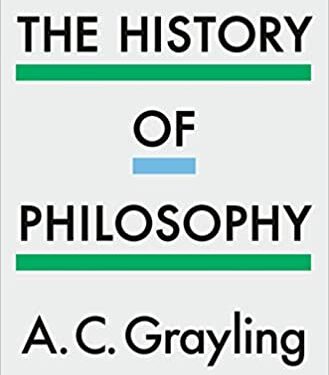Anarchists argue that governments are unnecessary and unjustified. They are mistaken.
-
-
Boomerang Books
A boomerang book is a book to which one often returns. I have several. Here are five: Philosophy and Education by George R. Knight “Why is a school set up like a playground?” “Why does my child have all these projects to do?” “Another field trip! What’s the point?” “Wow! are you sure we need all these books?” “Logic? is that really necessary?” How we, or our children, are educated is very important. But few stop to think about what grounds our choices. We often revert to an appeal to our preferences or our comfort with a particular teacher. George Knight’s book shows how each educational method, teaching style, curriculum,…
-
Ought I Believe?
Do we have doxastic obligations, obligations of belief? Is the sentence, ‘You ought to believe p’ intelligible or does it reduce to ‘p is true’ or ‘I want you to agree with me’? Say ‘S believes p’ is true. It tells us something about S but nothing about whether S ought to believe p. But we do think that there is some connection between belief and true propositions that is somehow related to a person’s obligations. We Can’t Believe Anything We Want We don’t really think that anyone can believe anything they want. We might say, ‘you can believe anything you want,’ but what we mean by freedom of belief…
-
3 Apologetic Strategies
Broadly speaking, there are three apologetic strategies. Picking an appropriate one for every occasion will aid an apologist’s success. Defensive Strategy The first apologetic strategy involves defending one’s own position against objections. For example, the problem of evil amounts to an objection to the Christian belief in God’s omnipotence and omnibenevolence. If one can successfully solve the problem of evil, then one has succeeded in rebutting the objection. Reasons to use the defensive strategy: Rebutting objections is a modest aim. It is far more achievable than either a full-blown defense of one’s view or showing that the alternative view is false. Weaknesses for the defensive strategy: The strategy does not…
-
Five of the Best: History of Philosophy Books
It is not strictly true that philosophers only write in the present tense. There are a good number of philosophers who turn their pens from analysis to narrative. Some, in fact, are quite good at it. Here are five of the best histories of philosophy in no particular order. First, a new one: A. C. Grayling’s The History of Philosophy. Grayling, master of New College, London, is a teacher by trade and by nature. He has a unique knack of explaining something quite complicated in an intelligible way. He also writes about the characters of philosophy with a good deal of personal interest. His tone always suggests that he is…
-
Progressing from Progressivism: Why I Moved on from the New Kind of Christian.
Back in the nineties, for a few years, I was a progressive Christian. Now, I am not. Why? In this post, I will tell you about five beliefs I uncritically held as a progressive Christian and why I was wrong. Epochism First, we believed that newer is better, and we thought we could predict the future on the basis of changes that had happened in the past. Thus, we predicted that there would be a new, better kind of Christianity and that old versions would become obsolete. I remember countless conversations in which we would discuss the inevitable demise of certain forms of Christianity, particularly conservative forms of evangelicalism. We’d…
-
On Property Acquisition
According to some, there are no natural rights to property. You can pursue goods all you like, but your rights to them don’t go with the acquisition. You’d need some form of social construction for that, and, if the society was against you, the society could chose not to grant you any rights. Moreover, there’d be nothing you could do about it. There certainly wouldn’t be any moral ground for your complaint. According to some adherents of this view, John Locke’s famous arguments for property acquisition are to be confined to the dustbin. For example, according to one objector, Locke’s labor-mixing argument for the acquisition of private property is unsound.…
-
In Defense of Defense: Challenges to Apologetics, pt. 2
The second challenge to apologetics is skepticism. The Skeptic suggests that even if there are mind-independent truths, we cannot know what they are. The problem with being a skeptic is that if one doesn’t think one can know the truth, then one won’t be inclined to defend it. No one is prepared to die for something that could very well turn out false. There are many ways to be a skeptic. One might suggest that we can always find ways to doubt what we believe. Perhaps you are a brain in a vat. How would you know that you are not merely a brain being stimulated in ways that bring…







